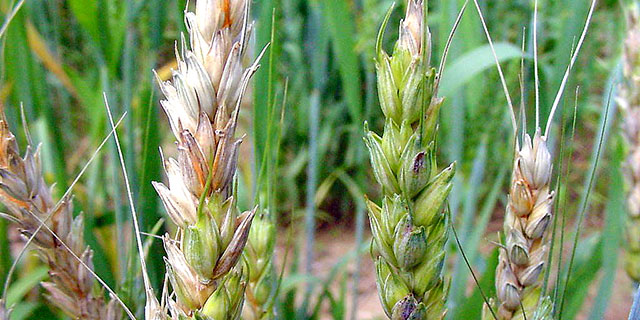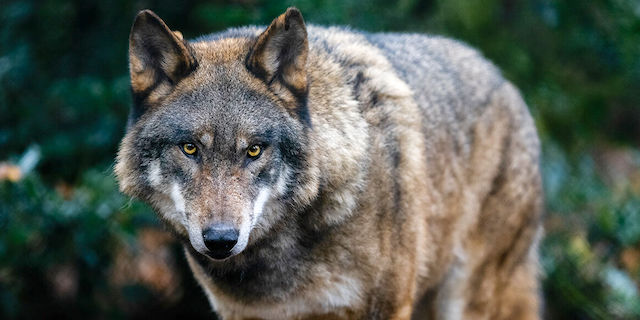Western Innovator: Washington wolf lead takes new challenge
Published 3:30 pm Friday, December 15, 2023

- Julia Smith
OLYMPIA — Julia Smith was until recently the Washington Department of Fish and Wildlife’s leader on wolf policy. She defended how the department handles wolves. She was in the spotlight and on a hot seat.
The job was uplifting and demoralizing, she said. As a zoologist, she sees a growing wolf population as a success. Washington wolves are not endangered, she said.
The demoralizing part was that some people don’t believe her. By saying wolves aren’t endangered, Smith contradicts the view that wolves are threatened by the livestock industry and compliant wildlife managers.
“This causes this visceral reaction in people. I understand that, but it’s the truth,” she said.
Smith, 36, left the wolf job recently to become the department’s endangered species recovery manager. The department has not selected a new wolf policy leader.
‘Setting the bar’
As Smith switches posts, she restates that Washington wolves are thriving, especially compared to wolves in other states. “I feel like I’m shouting at the top of my lungs: ‘Washington is setting the bar!’” she said.
Smith said she was a little sad to give up her former position. “I have liked being in the hot seat,” she said.
But wolves are not struggling while many animals are, Smith said. “I was devoting my blood, sweat and tears to a species that’s doing well.
“The biodiversity crisis is real, but what bothers me is when that phrase is brought up with species like wolves,” Smith said.
“Wolves, bears, cougars are really adaptable,” she said. “They are not affected by climate change in the same way as other species truly are.”
She said she’s still learning her new job and adjusting to thinking about many fragile species rather than a single robust one. “I felt uplifted in that job, and this job is not that way. It’s not a success story every day.”
Midwest upbringing
As a child in Indianapolis, she thought about wildlife but saw little of it. “When I was growing up, I thought I would be working in a zoo. I thought that’s where wildlife was.”
She chose Michigan State University because it had a zoology program and by then it was “be a zoology major or bust.” She went on to earn a master’s degree in zoology at Southern Illinois University.
For her master’s thesis, she surveyed Illinois residents’ attitudes toward recolonizing large carnivores. Her research found big carnivores are as dependent on social acceptance as biological factors.
Nine years later, Smith said she believes that “more than ever.”
“I almost feel like it’s the only thing that matters,” she said. “Wolf recovery depends on the people who live with wolves.”
Wolves there to stay
Northeast Washington rancher Scott Nielsen, who’s on the department’s Wolf Advisory Group, said ranchers have accepted that wolves are on the land and there to stay.
But the relationship between ranchers and the department is at a low point, he said. “That part is the worst it’s ever been.”
Ranchers are adjusting to wolves, but Fish and Wildlife is slow to uphold its end of the bargain, said Nielsen, who heads up the Cattle Producers of Washington’s range-riding program.
“They’re not removing problem wolves,” he said.
In Olympia, removed from where wolves are, Fish and Wildlife has to defend itself from accusations it’s too quick to kill wolves. Smith knows there’s a different perspective in wolf pack-saturated northeast Washington.
“It’s hard because Scott lives it every day of his life. You can’t discount what Scott says,” Smith said. “It does make me say, ‘Gosh, what can we do?’”
Not long out of graduate school, Smith took a job with the Arizona Game and Fish Department to work on Mexican wolf recovery. It was a field job. On her LinkedIn social media page, she’s pictured packing a wolf (tranquilized).
The job was fun and cool, she said, but she had no role in setting wolf policy. “I feel like I didn’t have a seat at the table.”
In 2018, she moved to Washington to be the wolf policy coordinator and was promoted to wolf policy lead in 2021. The state has advanced toward meeting recovery goals. Twenty-six packs had at least two surviving pups at the end of 2022, compared to 19 the year before.
35 endangered species
If wolves come off the state endangered species list, Washington will still have 35 endangered species and 12 threatened species, along with seven sensitive species and 70 candidates for listing.
Smith said she hopes she can help some of those species make a comeback and stay off the federal endangered species list, which has much larger ramifications.
One species she won’t be concerned about is wolves. “Wolves have their own section. They’re that special,” she said.
Julia Smith
Age: 36
Position: Washington Department of Fish and Wildlife endangered species recovery section manager
Previously: Fish and Wildlife wolf policy lead and wolf policy coordinator; Arizona Game and Fish Department Mexican wolf project director
Education: Bachelor’s degree, zoology, Michigan State University; master’s degree, zoology, Southern Illinois University






